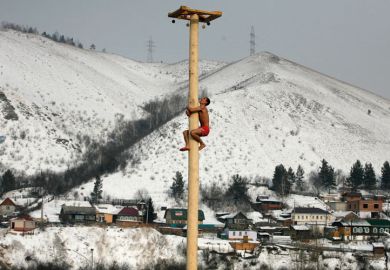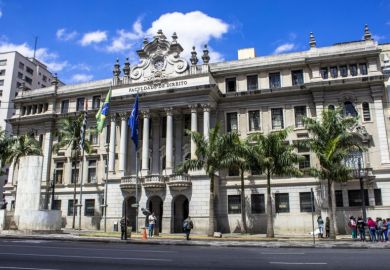It will be “impossible” for Russia’s universities to become internationally competitive as long as academic science and medical research take place outside universities in specialised academies.
That is the steadfast view of Philip Altbach, research professor and founding director of the Center for International Higher Education at Boston College, who said that the separation of science and medicine “deprives” the country’s universities of funds for research and “inhibits” interdisciplinary work.
He said the latter was of “special importance” as the future of scientific research and development (R&D) in many fields “depends on an interdisciplinary approach”.
In Russia, universities are traditionally tasked with teaching and have modest research budgets, while science research and medical education and research take place in separate institutions belonging to the Russian Academy of Sciences and the ministry of health respectively, he said.
In the paper “Two central obstacles to Russian academic excellence”, published in the journal International Higher Education, Professor Altbach said: “Although Russia has a distinguished academic tradition, many talented academics, and government backing to join the top ranks of global research universities, there are two fundamental structural barriers to success – created by the traditional separation of ‘academic science’ and ‘medical research’ from the universities and placing them in specialized academies.
“There are many other challenges as well – but these two structural realities are deeply embedded in the Russian academic structure, and without changing them it will be impossible for Russian universities to be fully internationally competitive.”
He added that the country’s existing higher education system also means that “the aging academy has cut itself off from the younger generation of scientists” by their distance from universities.
“The damage to Russia’s scientific system continues to be significant,” he said.
The Russian government has invested significant funds to upgrade some of its top universities to compete with the world’s best research institutions and for five of these to join the top 100 of global rankings by 2020, as part of its Project 5-100. But Professor Altbach said that the country’s ambition to join the top of world university rankings “will not be fulfilled without solving these key organizational and related challenges”.
Despite these concerns, Professor Altbach said that merging existing institutions with “quite different traditions and organizational patterns” would not be the solution.
“New and creative thinking concerning how to link different kinds of institutions and varying approaches to science and research are needed,” he said.
He added that change may already be on the way, as Dmitri Livanov, former minister for education and science, “drafted a new federal law that will replace existing regulations, emphasising the role of university-based science and R&D – in relation to the role of the Russian Academy of Sciences – and reducing the bureaucracy governing science policy and implementation, currently a very serious problem for the higher education sector”.
Register to continue
Why register?
- Registration is free and only takes a moment
- Once registered, you can read 3 articles a month
- Sign up for our newsletter
Subscribe
Or subscribe for unlimited access to:
- Unlimited access to news, views, insights & reviews
- Digital editions
- Digital access to THE’s university and college rankings analysis
Already registered or a current subscriber?








